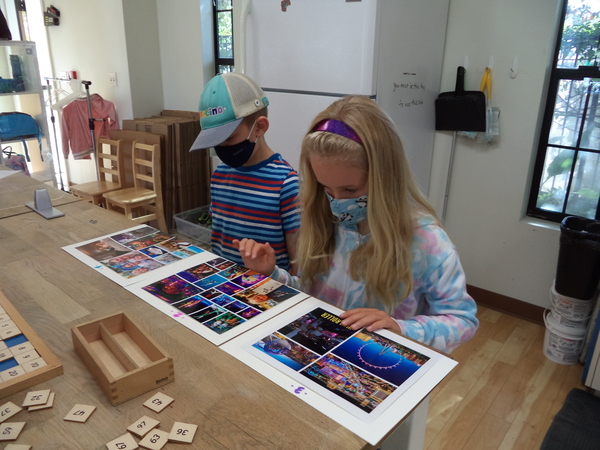(858) 759-0631
Second Plane of Development Changes
I wanted to write a bit on the changes that children experience when entering the second plane of development and how those changes alter the educational experience.
A child's task during the first plane of development (ages birth to 6) is to construct a human being. They come into the world with no language and no voluntary movement. Over the first six years, at a remarkable speed, children develop these skills as well as preferences for the food, ideas, ideals and religion of those around him or her. Having made these accomplishments, the child is now secure as a member of a particular society that is his own.
In the second plane (ages 6 to 12), the child's task is to construct an individual member of that society. To help this development, the child will take on adventures, sometimes risky, because they need to assert themselves. They have to show that they are strong enough to become an individual member of society.
We also see movement toward groups of children in the formation of clubs, wanting to dress alike, and the development of secret languages. These groups can become a great force for good in providing the child the opportunity for service and helping others.
The child still loves to explore, just as they did in the first plane, but the exploration is different. It is no longer sensorial. The absorbent mind is gone and is replaced by a reasoning mind. The child needs a bigger environment to satisfy his needs. They need to be provided unlimited opportunity in order that the reasoning mind is not constricted in its operation of exploring. The children like to take things apart to see how and why things operate and why they behave in a certain way. The children are interested in getting inside to see.
They are also interested in things that cannot be seen and the reasons behind the facts they have gathered during their first six years. This curiosity is the basis for scientific research. Man must see what he does not see and must understand what he does not understand. The mind of the human being can't be limited or stopped in the pursuit of what he can't explore sensorially.
The child is attracted to the function of things or showing how they fit together in a pattern. He is attracted to the reason behind the function. This type of exploration needs to be possible for the child to start him off on the process of looking for reason and looking for functions and allowing him to look as deep as he wishes. This is a personal pursuit and it will vary from child to child, subject to subject, but the child must have the freedom to follow his or her own interests. Dr. Montessori said that interest, "cannot be created. It must come from within." This is the reason a Montessori teacher is a facilitator of ideas and concepts through storytelling, not a conveyor of curriculum. It is the universe that gives the curriculum and the syllabus.
-Mrs. Stone, Elementary Teacher

